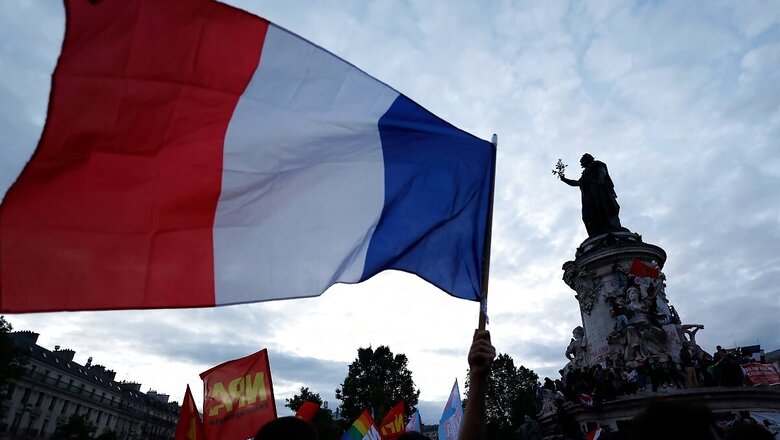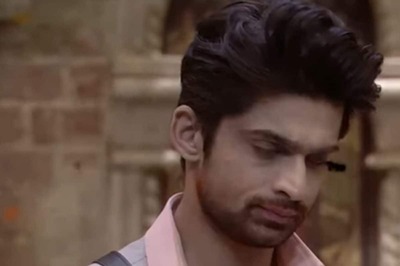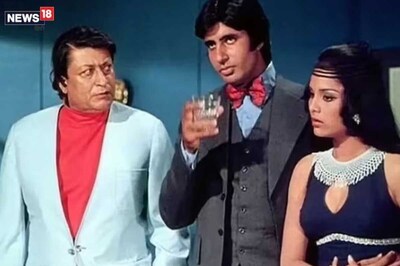
views
The English phrase that comes closest to describing the volte face in the second round of voting in the French elections is “a stitch-up”. A bunch of political parties with hardly anything in common ganged up to defeat a right-wing political party with a controversial past that had surged ahead in the first round. The broad swathe of French people who agreed to this eleventh-hour entente and voted “tactically” must be a confused, if not angry, cohort now.
Despite this opportunistic alliance, France is now saddled with three sharply delineated political blocs, with little love lost between the two. Their only meeting ground is hatred and fear of the third. And even inside the first bloc, the New Popular Front (NFP) comprising the gamut of the Left parties, there is discord, shelved between just the first and second rounds of voting to lull people into believing that an anti-Right formation can get a majority.
But they did not. Even though some 220 candidates from the Centre and Left alliances dropped out of races to ensure the strongest non-Right nominee wins, France has a “trishanku” National Assembly. For those who use the word “brute” when talking about a “majority” in parliaments anywhere (unless it’s the Left), this should be an ideal situation—several Left and Centre parties jockeying for their agendas. Only, they actually agree on very little.
The main political issues in France are such that compromises are tough. Ailing public finances on the back of a faltering economy, a decrease in the working population percentage but resistance to migrants making up that shortfall point to the dichotomies at play. Moreover, the cost of living is rising as are certain types of crime (homicide, sexual assault, burglary, and vehicle theft) though the rate of rise has slowed. France is far from “la belle vie” at present.
During the campaign, pro-Gaza Jean-Luc Melenchon of the hard-Left France Unbowed (part of the “winning” NFP along with the Socialists and Greens) had promised huge hikes in public spending and minimum wage as well as retirement age cuts. It is estimated that NFP’s pledges will need almost €180 billion in extra funds annually. And Melenchon, a fan of Hugo Chavez and Fidel Castro, insists there will be no compromise on his tax-and-spend agenda.
The NFP with 188 seats (Melenchon’s France Unbowed won 78 of those) is 101 short of the 289 needed for a majority, so a deadlock is inevitable unless they come to an understanding with Macron’s centrist coalition Ensemble (comprising his Renaissance, which was earlier called En Marche, Horizons, En Commun, Democratic Movement, and the Progressive Federation) that bagged 161 seats. Provided NFP resolves its in-house contradictions first, that is.
The Greens see themselves as a less divisive alternative to lead an NFP coalition government, and the Socialists, who did unexpectedly well in the elections, do not want Melenchon as Prime Minister either. And, of course, the Centrists led by Macron ideally want a compromise formula that excludes both France Unbowed and Marine Le Pen’s National Rally (RN). All of which does not augur well for a stable government for France for the time being.
But RN’s rise is clear and inexorable. In the 2017 elections that brought Macron to power, RN won just eight seats. In 2022, it rocketed to 89 seats. In Sunday’s vote RN, now led by the handsome 28-year-old Jordan Bardella, won 142, making it the largest party in the National Assembly. But Bardella had pledged at the outset of the campaign that his party would only bid for government if it got a clear majority. Sitting in opposition will earn them dividends.
The parallels with the Bharatiya Janata Party’s trajectory are uncanny. In 1984, the Congress got a record 414 seats in the wake of Indira Gandhi’s assassination and the BJP got just 2. In 1989, it went up to 85. In 1991 it got 120. In 1996, the BJP got the highest at 161 but (RN should note) got no allies. A last-minute alliance took power but lasted just two years. In 1998, the BJP got 182 seats and formed a National Democratic Alliance (NDA) government with “outside support”.
In 1999 elections were held again and the NDA got 269 with another 29 from a post-poll ally. It lasted only one term and was followed by two terms of a Congress-led United Progressive Alliance (UPA) government. The electorate saw the downside of governments with diverse coalition partners. That, as much as the personality of Narendra Modi, led India to elect a majority NDA government led by the BJP in 2014, more emphatically in 2019, and less so but again in 2024.
It can be said that being seen as a political pariah made the BJP try even harder to carve out a base for itself, tapping into sentiments that only it could assuage in the minds of voters. The RN appears to be setting out to follow much the same course, pushing aside the racist and anti-Semitic rhetoric that was once its leitmotif, although ironically the latter is now fast becoming a characteristic of Leftists in Europe. The RN’s “idea of France” is clearly different.
And once the hoopla over the “shock” victory of the Left dies down, the creators of this last-minute stitch-up will have to wonder whether their focus on winning the battle has set them up to lose the war. France’s presidential election will be in 2027 and people will watch how long and how well Macron’s centrist alliance and the Left coalition work. If it does not last till 2027 (as many fear), Marine Le Pen may succeed Macron at Elysee Palace. And then what?
Commentators will be monitoring this French experiment, in the hope of citing positive developments in order to advocate it in other countries that still have a largely two-party or two-formation political landscape. If this coalition stays the course, it may be able to dent the rising Right in other nations. But if it does not, Right-wing governments in Europe and elsewhere and “strong leaders” will gain strength as people get put off by the chaos of splintered verdicts.
The author is a freelance writer. Views expressed in the above piece are personal and solely those of the author. They do not necessarily reflect News18’s views.



















Comments
0 comment